 W
WFederalism was adopted, as a constitutional principle, in Australia on 1 January 1901 – the date upon which the six self-governing Australian Colonies of New South Wales, Queensland, South Australia, Tasmania, Victoria, and Western Australia federated, formally constituting the Commonwealth of Australia. It remains a federation of those six "original States" under the Constitution of Australia.
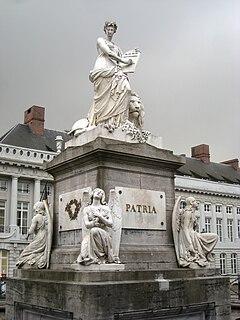 W
WBelgian nationalism, sometimes pejoratively referred to as Belgicism, is a nationalist ideology. In its modern form it favours the reversal of federalism and the creation of a unitary state in Belgium. The ideology advocates reduced or no autonomy for the Flemish Community who constitute Flanders, the French Community of Belgium and the German-speaking Community of Belgium who constitute Wallonia and the Brussels-Capital Region which is inhabited by both Walloons and Flemings, and the dissolution of the regional counterparts of each ethnic group within Belgium.
 W
WChinese federalism refers to political theories which argue that China's central government should share sovereignty with regional entities, under a form of federalism. Such proposals were made in the early twentieth century, in connection with the end of the Qing dynasty; as well as recently, with a view to providing checks against the power of the central government, as well as settling the relationship between Mainland China, Taiwan, Hong Kong, Macau, and other potential political entities.
 W
WThe Constitutional Act on the Czechoslovak Federation was a constitutional law in Czechoslovakia adopted on 27 October 1968 and in force from 1969 to 1992. It converted the previously unitary Czechoslovak state into a federation.
 W
WÉire Nua, or "New Ireland", was a proposal supported by the Provisional IRA and Sinn Féin during the 1970s and early 1980s for a federal United Ireland. The proposal was particularly associated with the Dublin-based leadership group centred on Ruairí Ó Brádaigh and Dáithí Ó Conaill, who were the authors of the policy.
 W
WEuro-Slavism, also spelled Euroslavism, is a political concept that evolved from pan-Slavism. It aims to solve problems of Slavic peoples within the European Union. Euroslavists promote cooperation and unity among Slavic peoples, which can be achieved through European integration.
 W
WThe Federal Charter or Letter of Alliance is one of the earliest constitutional documents of Switzerland. A treaty of alliance from 1291 between the cantons of Uri, Schwyz and Unterwalden, the Charter is one of a series of alliances from which the Old Swiss Confederacy emerged. In the 19th and 20th century, after the establishment of the Swiss federal state, the Charter became the founding document of Switzerland in the popular imagination.
 W
WThe federalization of Yemen or the Federal Republic of Yemen was the final outcome of the National Dialogue Conference, the Dialogue members also agreed that Yemen would be transformed into a 6-region federal system. The regions would be Azal in the North, and Saba in the Center, and Tihama in the West, and Aden and Jand in the South, and Hadramawt in the East. Sana’a will have a special status and not be part of any region. Aden, the former southern capital, would also have a special status but will be part of Aden region. Azal, Saba, Janad and Tihama would be northern provinces where Aden and Hadramawt would be southern. The proposal also includes changing the title of "Governorate" to "state".
 W
WFederalism in Germany is made of the states of Germany and the federal government. The central government, the states, and the German municipalities have different tasks and partially competing regions of responsibilities ruled by a complex system of checks and balances.
 W
WThe Greek-Yugoslav confederation or federation, or Balkan Union, was a political concept during World War II, sponsored by the United Kingdom and involving the Yugoslav government-in-exile and the Greek government-in-exile. The two governments signed an agreement pushing the proposal ahead, but it never got beyond the planning stage because of opposition from within the Yugoslav and the Greek governments, real world events, and the opposition of the Soviet Union. The proposal envisioned the creation of a confederation of Greece and Yugoslavia.
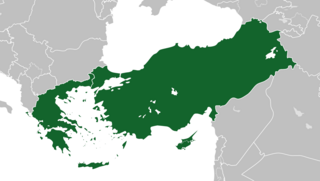 W
WHellenoturkism is a political concept that encompasses two things: a fact of civilization, and a political ideology based on the above civilizational phenomenon, which aims at establishing a Greek-Turkish political ensemble.
 W
WIntermarium was a geopolitical project conceived by politicians in successor states of the former Polish–Lithuanian Commonwealth in several iterations, some of which anticipated the inclusion as well of other, neighboring states. The proposed multinational polity would have extended across territories lying between the Baltic, Black and Adriatic Seas, hence the name Intermarium, meaning "Between-Seas".
 W
WA Landtag is a representative assembly (parliament) in German-speaking countries with legislative authority and competence over a federated state (Land). Landtage assemblies are the legislative bodies for the individual states of Germany and states of Austria, and have authority to legislate in non-federal matters for the regional area.
 W
WMajimbo is a Swahili term that is commonly used in Kenya to refer to the idea of political devolution of power to the country's regions. It is alleged by critics, including former vice-president Oginga Odinga in his book Not Yet Uhuru, to have been coined by European settlers in Kenya's White Highlands region, around the time of independence in 1963, who preferred to retain an autonomous, ethnically-based governance over the region. It has also been alleged, by some of its critics, that majimbo is a pretext for the type of communal violence that has plagued Kenya's elections especially since the return of multiparty politics. In his autobiography Illusions of Power, G.G Kariuki, a long serving KANU Member of Parliament, goes as far as to allege the existence of a plot to instigate communal violence in Kenya's independence elections by supporters of a Majimbo system of government.
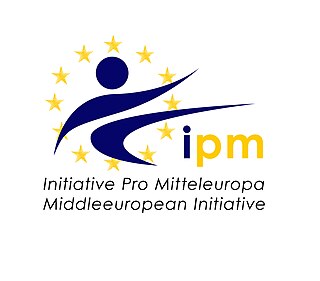 W
WThe Initiative Pro Mitteleuropa - Middleeuropean Initiative is an international NGO, based in Vienna. President of IPM is Philipp Depisch from Austria.
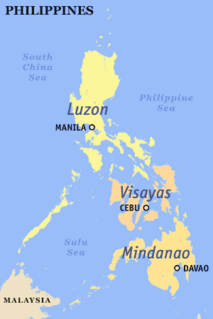 W
WFederalism in the Philippines is a proposed form of government in the country.
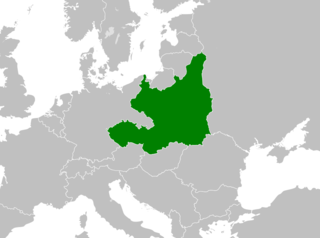 W
WThe Polish–Czechoslovak confederation, or federation, was a political concept from the time of World War II, supported by the Polish government-in-exile and, to a lesser extent, the United Kingdom and the United States. It was a revitalisation of the Międzymorze concept, proposing the creation of a federation based on Poland and Czechoslovakia. The project had less support in the Czechoslovak government-in-exile, which believed it did not need Polish support against the Soviet Union, and was eventually sunk by the growing Soviet dominance, as Joseph Stalin did not want a strong and independent federation in Europe that could threaten his designs for Eastern Europe.
 W
WFederalism in Spain began in the 1830s, although it has its roots in the 1790s. The first and only attempt to establish a federal state in Spain occurred during the First Spanish Republic (1873-1874). After this failure, federalism was a minority political current. In the Second Spanish Republic and in the Transition, an intermediate model was chosen between federalism and centralism — the integral state, in the first case; and the regional state in the second.
 W
WThe Spinelli Group is an initiative founded with a view to reinvigorate the endeavour for federalisation of the European Union (EU), by creating a network of citizens, think tanks, NGOs, academics, writers and politicians who support the idea of a federal and united Europe. Among other goals, the Group aims to "find a federal majority [among members of the European Parliament] on important subjects." Founded on 15 September 2010 in the European Parliament (EP) in Brussels, the group is named after Altiero Spinelli (1907–1986), founder of the Union of European Federalists (UEF) and a founding father of the European integration.
 W
WThe rise of Switzerland as a federal state began on 12 September 1848, with the creation of a federal constitution in response to a 27-day civil war, the Sonderbundskrieg. The constitution, which was heavily influenced by the United States Constitution and the ideas of the French Revolution, was modified several times during the following decades and wholly replaced in 1999. The 1848 constitution represented the first time, other than when the short-lived Helvetic Republic had been imposed, that the Swiss had a central government instead of being simply a collection of autonomous cantons bound by treaties.
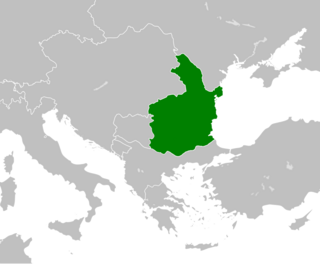 W
WSeveral failed proposals were made during the 19th and 20th centuries to unify Bulgaria and Romania into a common state, under either a federation, a personal union or a confederation. Such ideas found support, especially in Bulgaria, and there were several opportunities to realize them. Proposals usually came from Bulgarians, but it was Romanians who were to hold the leading positions. These proposals ultimately failed because of cultural and political differences between the two peoples and the opposition from great powers like Austria-Hungary and especially Russia.
 W
WThe proposed union of Hungary and Romania comprises unsuccessful 20th-century interbellum attempts to unite the Kingdom or Republic of Hungary with the Kingdom of Romania. Such proposals were most active in 1919 and 1920, though they had appeared somewhat earlier and continued up to World War II.
 W
WFederalism in the United Kingdom refers to the distribution of power between constituent countries and regions of the United Kingdom. The United Kingdom, despite being composed of four countries has traditionally been a unitary state governed by the Parliament of the United Kingdom in Westminster. Instead of adopting a federal model, such as that of the United States, the United Kingdom employs a system of devolution, in which political power is gradually decentralised. Devolution differs from federalism in that devolved regions are not states and thus have no constitutional precedence. As such, an Act of Parliament could undo devolution, whereas the federal United States government cannot revoke a state's statehood. Devolution has only been extended to Scotland, Wales, Northern Ireland, and Greater London, with London being the only English region to have significantly devolved power.
 W
WFederalism in the United States is the constitutional division of power between U.S. state governments and the federal government of the United States. Since the founding of the country, and particularly with the end of the American Civil War, power shifted away from the states and toward the national government. The progression of federalism includes dual, cooperative, and new federalism.